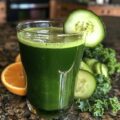Aioli, a rich garlicky mayonnaise, has long been a staple in Mediterranean cuisine. Beyond its undeniably delicious flavor, this sauce offers some noteworthy health benefits. Let’s explore the nutritious ingredients, helpful preparation tips, and wholesome ways we can incorporate aioli into balanced meals.
What Makes Up This Sauce?
The core components of aioli are:
- Extra virgin olive oil – Provides healthy fats and powerful antioxidants.
- Garlic – Contains antiviral and antibiotic compounds.
- Eggs – Supply protein and vitamins.
- Lemon juice – Adds bright, fresh flavor and vitamin C.
- Salt – Essential for regulating fluids.
Potential Advantages
Research suggests aioli’s main ingredients may:
- Boost heart health.
- Support immune function.
- Improve cholesterol levels.
- Have antimicrobial effects.
Ways to Make Aioli
You can make aioli in a few different ways:
- The traditional mortar and pestle method – Crush garlic cloves with salt, then slowly drizzle in olive oil while whisking to emulsify.
- Using an immersion blender – Combine ingredients in a tall container and blend till smooth and thickened.
- By hand whisking – Whisk olive oil into egg yolks and garlic paste till emulsified, then season.
Serving Suggestions
Aioli makes a flavorful accompaniment to dishes like:
- Grilled fish or vegetables.
- Sandwiches and burgers.
- Fries or baked potatoes.
- Steamed artichokes or asparagus.
Tips for Balanced Meals
To enjoy aioli as part of a wholesome diet:
- Use it in moderation, since it is high in calories and fat.
- Emphasize vegetables, fruits, whole grains and plant proteins at meals.
- Select healthy fats from foods like olive oil, nuts and avocado.
- Incorporate garlic and lemon juice into dressings and marinades.
Frequently Asked Questions
Is aioli healthy?
Aioli is high in fat from the olive oil and eggs, but these are predominantly healthy unsaturated fats associated with reduced inflammation and cholesterol levels. The garlic also provides cardiovascular benefits. So in moderation, aioli can be part of a balanced diet.
Is aioli gluten-free?
Traditional aioli recipes contain just olive oil, garlic, eggs, lemon juice and sometimes mustard, all of which are naturally gluten-free. However, some modern versions add thickeners like flour, which would introduce gluten. So check your recipe and ingredients if following a gluten-free diet.
Can aioli be made vegan?
Yes, vegan aioli alternatives often swap the eggs for soaked raw cashews, tofu or silken tofu to provide the same emulsification and richness. Some recipes also use vegan mayo instead of raw eggs.
How long does homemade aioli last?
Since aioli contains raw egg yolks, homemade versions should be kept refrigerated and used within 2-3 days. The lemon juice adds some acidity to help preserve it, but it’s still perishable unlike shelf-stable commercial varieties.
What goes well with aioli sauce?
Aioli is very versatile and complements a wide variety of dishes. It’s excellent with grilled or roasted vegetables, chicken, fish and seafood, potatoes, sandwiches, pasta salads and more. Experiment with drizzling or dolloping it onto your favorite healthy meals for a flavor and nutrition boost!









